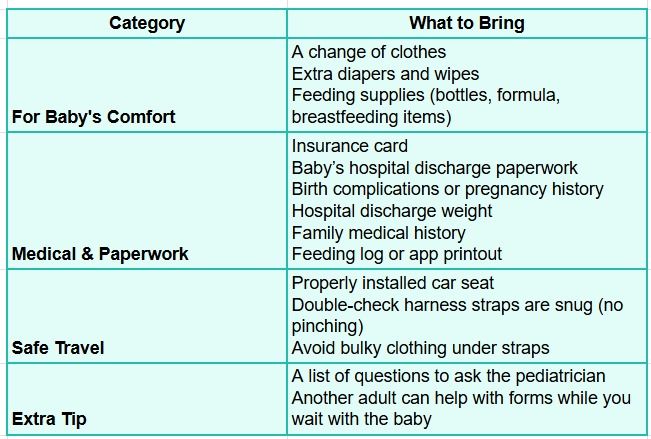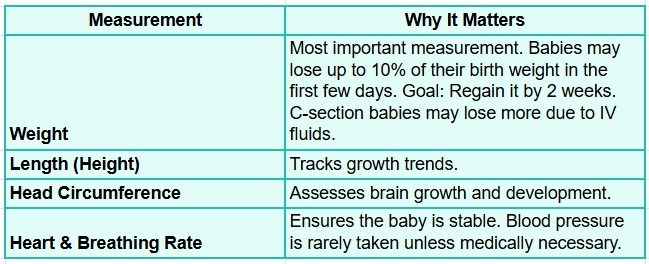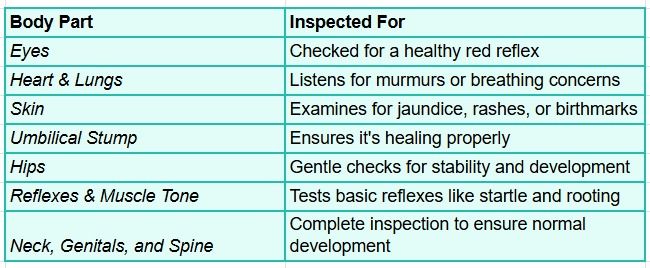What to Expect During Your Baby’s First Pediatric Visit
Welcoming a new baby is a joyful yet overwhelming experience, especially when it comes to their health and early care. At Pristine, a trusted pediatric clinic in Spring, Houston, New Caney, Cypress and Katy, we understand the concerns of new parents. In this article, our expert pediatricians has input the guide/walk-through on what what to expect during your baby’s first visit—so you feel informed, prepared, and supported every step of the way.
When should you have your baby’s first Pediatric visit
Here’s what you need to know:
- Most pediatricians recommend scheduling the first visit between days 3 and 5 of life.
- If your baby was discharged from the hospital within the first 48 hours, the visit should happen even sooner—within 48 hours of coming home.
- Some providers suggest visiting within 1–2 days of leaving the hospital, especially for first-time parents or if there were any concerns during delivery.
What to Bring to Your Baby’s First Pediatric Visit
Having a checklist for your baby’s first visit to the Pediatrician in Houston or anywhere around the world makes the experience smoother and more reassuring.
Here’s what to bring to ensure a stress-free visit and to help your pediatrician provide the best care for your baby: Essential Items Checklist -
Category
(If you’re searching for a pediatric provider who accepts Medicaid near you, be sure to bring your insurance card and any relevant coverage documentation to the visit.)
What Happens During a Baby’s First Pediatric Visit
Your baby’s first pediatric appointment is a thorough and supportive experience designed to make sure they’re adjusting well to life outside the womb and to give you the guidance you need during this new chapter.
1. Initial Measurements & Vital Signs
The visit usually begins with a nurse or medical assistant gathering your baby’s baseline stats:

2. Discussion with the Pediatric Provider
Once measurements are taken, you’ll meet your pediatric provider for a comprehensive conversation covering:
- Pregnancy and Delivery: Review of hospital discharge notes and any complications.
- Feeding Patterns:
- Type (breast, formula, or combo)
- Frequency and duration
- Challenges and stamina (feeding is considered your baby’s "exercise")
- Bring a feeding log or tracking app if possible.
- Diaper Output:
- Wet and dirty diaper count
- Transition from meconium (black sticky poop) to yellow, seedy stools
- Jaundice Check:
- Pediatric provider looks for yellowing of skin and eyes
- May use a transcutaneous bilirubin sensor
- If levels are high, they may recommend a blood test or phototherapy (Pediatric providers also monitor developmental milestones and may discuss early signs of conditions like ADHD or autism. While this first visit is early for a formal evaluation, a pediatric provider can diagnose autism later through follow-up assessments.)
- Head-to-Toe Physical Examination
This is your baby’s first in-depth exam post-hospital examination where the Pediatric provider usually checks:

Your baby’s first visit also includes a check-in on your emotional and physical well-being, including sleep, stress, and postpartum health. Pediatric providers offer guidance on feeding, safe sleep, and car seat safety, and provide handouts for reference. Before leaving, you’ll schedule the next visit and are encouraged to reach out anytime with questions or concerns.
5 questions that every parent must ask their pediatric provider
Q1. Is my baby’s weight and feeding pattern on track, and how can I tell if they’re getting enough to eat? (Especially important if breastfeeding, where volume intake isn’t easily measured.)
Q2. What is jaundice, and how do you check if my baby has it? If present, what are the treatment options?
Q3. How should I care for the umbilical cord stump, and when should I be concerned about signs of infection?
Q4. What safe sleep and car seat practices should I follow to keep my baby protected at home and on the go?
Q5. What signs should prompt me to call your office, and how can I reach you with questions after today’s visit?
Your baby’s first pediatric visit is just the beginning of a supportive and attentive care journey. After this initial appointment, you can expect close follow-up visits in the first few weeks. These are essential to carefully monitor your baby’s weight, feeding, and overall development during this critical time.
At Pristine, we are committed to guiding you every step of the way. Whether you're in Spring, Katy, or looking for a trusted pediatrician in Houston, our team is here to support your growing family.
Schedule your baby’s first visit with a Pristine pediatrician today and let us help you start this journey with confidence and care.
Frequently Asked Questions (FAQ’s)
Q1. What should a baby wear to the first pediatrician appointment? Ans. A baby should be adorned with simple clothes that are comfortable and easy to remove and put back on so that the entire visit takes place smoothly.
Q2. How soon after a baby is born do they need to see a doctor? Ans. It is recommended that a newborn baby should see a doctor within 3 - 5 days of their birth.
Q3. What is the most critical time for a newborn? Ans. The first month of the life of a newborn is the most critical time in their lives.
Q4. What is the meaning of paediatrician doctor? Ans. A paediatrician doctor is one who is trained well in treating, diagnosing and prreventing injuries and diseases in children.


